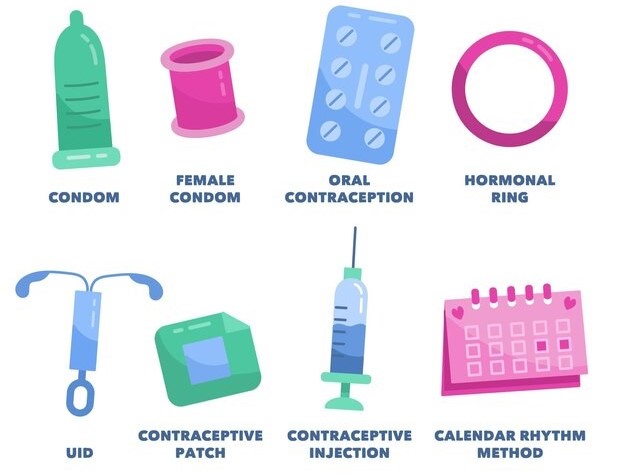Stakeholders have said that effective family planning services contribute to national development by curbing population growth and alleviating resource pressure.
They said this at the ongoing eighth Nigeria Family Planning Conference 2024 in Abuja, themed, “Sustaining commitments for family planning within the Nigeria health sector renewal investment initiative, advancing progress towards achieving FP2030 goals,” organised by the Association for the Advancement of Family Planning in collaboration with the Federal Ministry of Health and Social Welfare.
In his remarks, a former Minister of Health, Dr Isaac Adewole, said an effective FP services can alleviate pressure on resources such as education, healthcare, and employment.
Adewole, who is also the chairman of the conference noted that the role of FP as a cornerstone of the country’s health system and a key driver of national development cannot be overemphasised.
He stated that Nigeria faces significant challenges related to reproductive health, including high maternal and infant mortality rates, unplanned pregnancies, and limited access to contraceptive methods.
He said over 19 per cent of married women in Nigeria have an unmet need for contraceptives, leading to increased health risks.
He noted that effective FP services can reduce maternal and infant mortality and improve quality of life and economic empowerment, particularly for women.
To accelerate progress towards FP2030, Adewole emphasised that the government should focus on domestic funding, strengthen the supply chain, and integrate family planning into essential services.
He also stressed the importance of providing youth-friendly FP services to empower young people, who represent over half of Nigeria’s population.
“We need to provide adolescents and young adults with accurate information and accessible resources to make informed reproductive choices,” he said.
“We also need to strengthen our partnerships with development partners, civil society organisations, and the private sector to leverage resources, expertise, and innovation to accelerate progress,” he said.
“Furthermore, we need to ensure that our FP programmes are evidence-based, data-driven, and responsive to the needs of all Nigerians, particularly the most vulnerable and marginalised populations,” he said.
He urged every stakeholder to seize this moment to innovate, collaborate, and deliver on our shared commitments.
“Together, we can transform FP into a cornerstone of Nigeria’s sustainable development agenda.”
In his remarks, the Country Director of the Bill and Melinda Gates Foundation, Uche Amaonwu noted that the theme of the conference reflects the foundation’s understanding of the critical importance of family planning as a cornerstone of Nigeria’s health sector transformation and broader development agenda.
Amaonwu, who was represented by the Deputy Director, Family Planning at the Foundation, Rodio Diallo emphasised that family planning is more than a health intervention.
“It is a transformative force for socioeconomic advancement, gender equity, and sustainable development. By empowering individuals, especially women and girls to make informed reproductive health decisions, family planning fosters improvement in education, productivity, and quality of life,” he said.
Amaonwu emphasised the need to prioritise high-impact solutions, such as strengthening the supply chain, enhancing domestic financing, and fostering innovation in policy and service delivery.
“Also, engaging communities in a way that supports and empowers women and girls while addressing social norms through culturally sensitive approaches is critical to achieving our goal. The Gates Foundation is proud to collaborate with the government of Nigeria and its partners to expand access, improve quality, and leave no one behind.
“And to advance FP2030 goal, we must scale proven high-impact strategies and ensure family planning remains central to Nigeria’s health and development priorities. As we all know, family planning is not merely a health solution. It is a high-return investment, with every dollar invested generating up to $120 in health and socioeconomic benefit.
“This conference is an opportunity to renew our commitment, share lessons learned, and inspire bold actions. Together, we can transform challenges into opportunities and ensure family planning becomes a pillar of Nigeria’s health sector renewal and a cornerstone of its development. Let us seize this moment to strengthen partnerships and that will drive, and we all drive, scalable and impactful interventions,” he added.
On her part, the Special Adviser to President Bola Tinubu on health, Dr Salma Ibrahm Anas, said although the nation has made progress in promoting FP, it still has a long way to go.
“To address these challenges, we need to work together to create a future where every woman and girl in Nigeria has access to FP services,” she said.
“We must also ensure that our conversations are inclusive and take into account the perspectives of all stakeholders,” she highlighted.
She, however, advocated for a homegrown solution to solve FP challenges, noting that there is a need to develop strategies that are tailored to our unique context and needs.
“Another challenge we face is the lack of awareness about FP so we need to invest in education and awareness-raising programmes,” she said.


